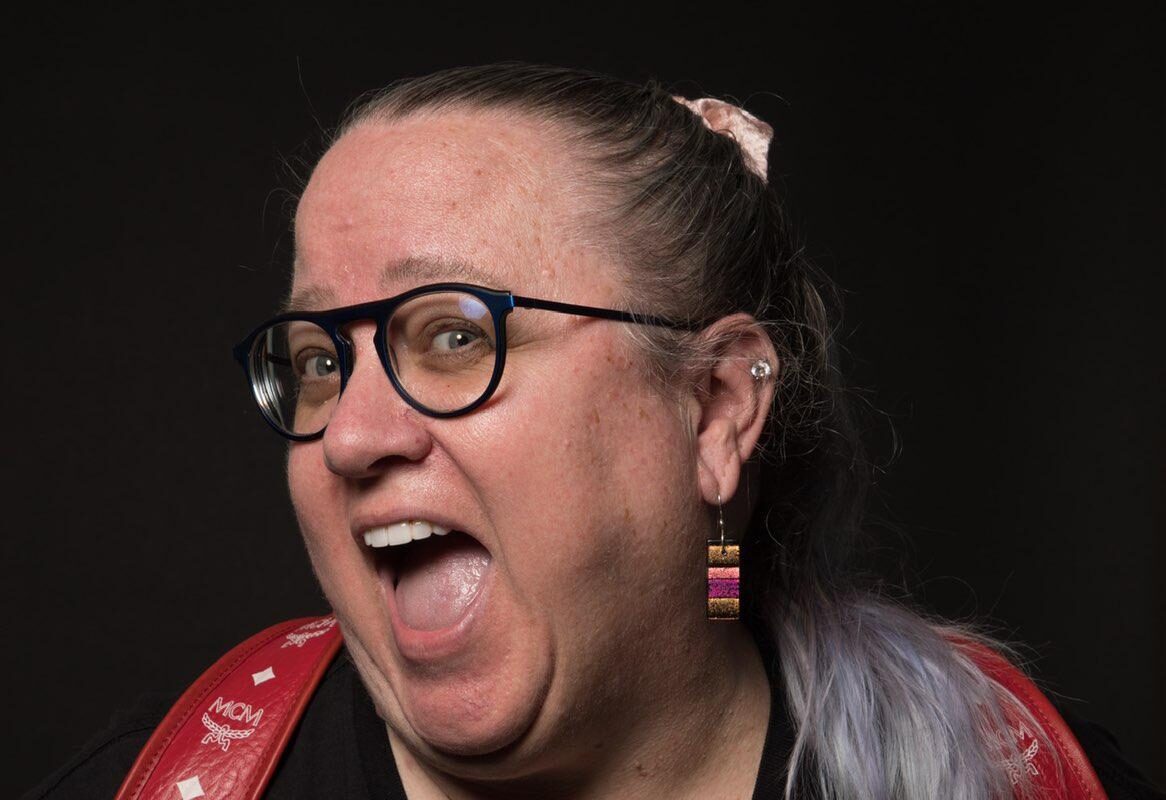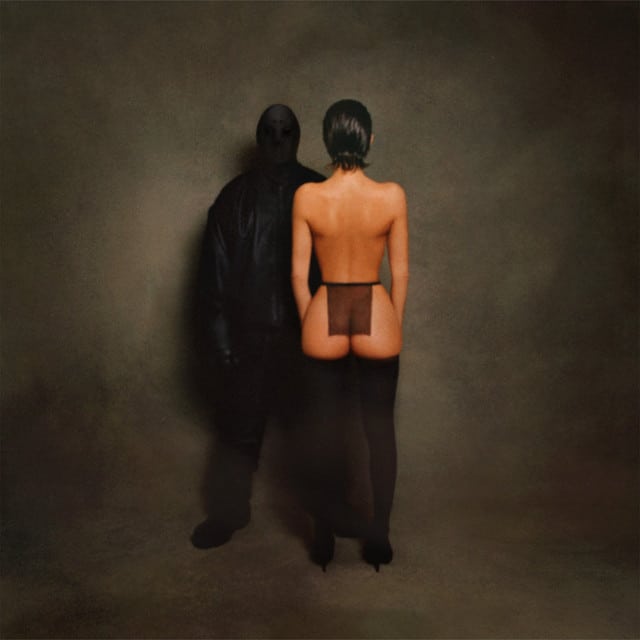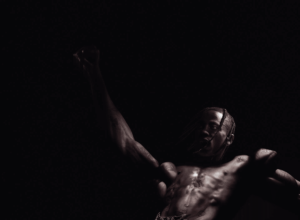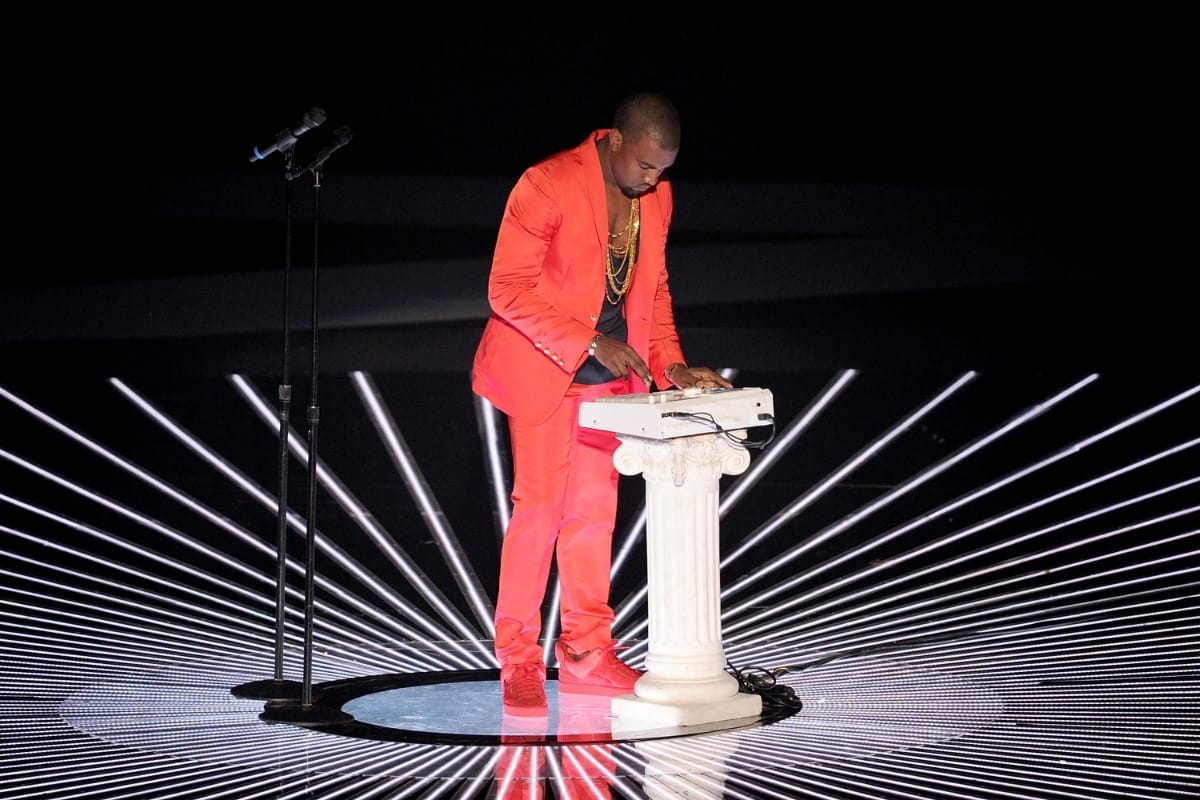Appearances can be deceiving. When you first Google up Wendy Day and you see a middle-aged white woman, who would fit in well working a normal 9-to-5 in an office somewhere, it’s hard for you to imagine how she could be one of the most important figures in the hip hop industry.
Now don’t get it twisted, Wendy Day is absolutely known in the industry, there’s a very long list of legendary hip hop figures who respect and love her for what she’s done for the culture. When we call her “hip hop’s unsung hero,” we just mean that the recognition for what she’s done in hip hop are not equal at all.
Over the years, Day has worked with artists and executives like Master P, Birdman, Eminem, Twista, Lil Wayne, Juvenile, Young Buck, and plenty more. Collectively, her clients have gone on to sell over a billion records worldwide. How’s that for impact? Just peep at how many times her name appears on our list of greatest business moves in hip hop history.
Wendy Day: I don’t ever want to hear an artist say, ‘Gee, I was a star at 25 and now I’m a failure at 30.’ My goal is to give them a viable source of income for the rest of their careers.
‘Independent artists can do everything that major labels can.’ | Music Business Worldwide
Wendy Day’s story in rap starts back in 1980, when she was attending art school in Philadelphia where she majored in graphic design. One day, while at an event she was waiting for her favourite band – British rock act The Psychedelic furs – to come on stage. Suddenly, one of the supporting acts, Grandmaster Flash & The Furious Five, captured her attention.
“I went from looking at my watch wondering when The Furs were coming on stage to just being mesmerised,” she recalls in an interview. “When [Grandmaster Flash] got off stage I didn’t want it to stop.”
From there, she became immersed in the Philadelphia rap scene, before making her way to New York in 1987 and discovering the Rap Attack show featuring Mr. Magic and Marley Marl. She fell in love with the show and it wasn’t long before she decided to quit her corporate job and move to New York.
“When I got home from that weekend I went in on Monday, gave my two week’s notice, I ended up only having to stay a week,” she said. “I loaded all of my crap into a U-Haul, got out of my lease, and I moved to New York!”
In 1992 she took a class called “The Pop Music Business” taught by Sid Bernstein, who was responsible for bringing The Beatles to America, and Bert Padell, an accountant for rap superstars like Run-D.M.C. and Rakim. During the class, Day realised that most of the artists in hip hop were being exploited, which inspired her to start Rap Coalition, a not-for-profit organisation designed to help artists navigate the complex and treacherous music industry.
Since then, the Rap Coalition has helped countless artists negotiate their way out of bad deals, educated them on how to get paid in the music industry and provide a supportive community. The organisation counts luminaries Chuck D, Keith Murray, David Banner, Sticky Fingaz, Killah Priest as board members. Tupac Shakur was the Rap Coalition’s first board member in 1996 before his untimely death.
Day has been involved in way too many record deals to list, but a few of the biggest ones include:
- Master P and No Limit Records’ 85/15 distribution deal with Priority Records
- Twista’s 50/50 venture with Atlantic Records
- Cash Money Records’ $30 million deal with Universal Music Group.
To add to those records, Day was also responsible for organising the 1997 Rap Olympics, which served as a platform for Eminem to showcase his immense talent. This subsequently led to him being discovered by Dr. Dre and getting signed to Aftermath and Interscope Records.
“We tried getting him write up in The Source but that didn’t help,” Day explained in an interview with B High Atl. “We did Unsigned Hype, that didn’t help. At that time, music was going from being lyrical on the underground like backpack type rap to Gangster and mainstream. More like bad boy type rap. So I decided to do an event called ‘Rap Olympics’ to bring attention and press to real lyrical guys to show the world that they are still there and to showcase Eminem cause he is lyrical and it worked. It got him signed to Dre, to Interscope, to Aftermath.” said Day.
In an interview on Mike Tyson’s podcast, Eminem explained the story from his perspective:
Eminem: I met Wendy Day, and she put me on her battle team. She had this battle team that was at the event in LA called the Rap Olympics, and she put me on that team. I went out to LA, and we got in that battle at the Rap Olympics, went all the way to the end and lost again to the last dude. And I was super discouraged, I just got evicted from my house, had to break in through the back of the house. The dude that we was paying rent to, he wasn’t paying the rent with it. So one day, this is literally the day before I go to the Rap Olympics. Thank God for Wendy Day because she paid for my plane ticket.
Mike Tyson Interviews Eminem | Hotboxin’ With Mike Tyson
The list of rappers that Wendy Day has helped over the decades is immense. There’s Lil Wayne, B.G., Juvenile, the Hot Boys, C-Murder and Fiend. There’s Do or Die, Boosie, Webbie, and David Banner. There’s Ras Kass, there’s Trouble, and Young Buck, who in particular has been very vocal about Day’s support for him.
In an interview with Vibe, Young Buck spoke about Day being there for him during his time in prison. “Wendy Day walked with me through my whole time in prison. She was even with me during time away from 50. So if y’all really want to know who’s been there for Buck, Wendy Day. Whatever I decided to do, she said, ‘I got your back, go do it.’ And I’m able to sit here today and say, ‘Wendy, look at me, I’m moving momma. I’m on my way momma. I love you, Wendy. I love everything that you’ve done for me.’”
As someone who has dedicated her whole life to helping hip hop artists thrive and get their business right, Wendy Day needs to be someone that every rap fan knows about, and who the culture is consistently celebrating.
Read more.
Life Lessons I Learned From Tupac Shakur // Wendy Day (2006)
Over the years, Wendy Day has been able to form close and genuine relationships with many artists, helping most of them shop for record deals and navigate out of bad contracts. One of the rappers she grew close with was Tupac Shakur, who taught Day many lessons about the music industry as well as life; in this blog post she writes about his impact on her.
- On learning about the music business: “On the business side, I learned that if you make a great song you will create a few temporary fans, but if you touch the people, you will build a fan for life. Pac built fans for life.”
- On Pac’s work ethic and commitment to his fans: “He took pictures with fans and signed autographs until he was the last person to leave the venue. He signed every last autograph. His fans were able to feel him and touch him often. He built fans for life, not just temporary fans of his music who’d buy a CD. His work ethic was unsurpassed.”
- On Rap Coalition not charging for helping artists: “Tupac Shakur was the first board member of Rap Coalition in 1996. We argued often about Rap Coalition helping artists for free. I was not, and still am not, willing to accept the fact that I have to charge artists who are in need of help, in order to gain their respect and recognition.”
In an interview for the Strange Music website, Day spoke to Jeff Nelson about her history in the rap game; brokering the No Limit and Cash Money deals; and how Strange Music has paved the way for independent artists.
- On her inspiration for the No Limit-Priority Records deal: “The first deal that I did, or that I played a role in – I was just one of a handful of people – was Master P’s deal for No Limit Records at Priority. The thing that made that deal so spectacular was that I had just read a book about Lucille Ball’s life and in it she was talking about how when she and Desi Arnaz started Desilu Productions, they started it from a position of ownership. They set up their studio so they could own all of the footage, the masters and the reels, so that when they went to do deals inside of Hollywood they owned everything. After reading that I was like shit, why can’t we do that in music?”
- On how Cash Money Records created leverage for their distribution deal with Universal: “In the midst of shopping their distribution deal, not only had we proven to the distributors that we were worthy because we could fill a pipeline and we had a strong buzz in the South, but we were also able to show them that with the right partner we could really grow and become something. If you can sell 75,000 CDs independently, by yourself with a small budget, you know what you can do with a major label behind you.”
- On Strange Music’s independent business model: “When I was there in July, the one question I kept asking Travis was, ‘Why haven’t other rappers come out and seen this business model and sat down with you and executed their business model?’ Because Travis is so forthcoming with information. Why hasn’t T.I. blueprinted Strange Music for Grand Hustle? Why hasn’t Jay Z blueprinted Strange Music for Roc? Why hasn’t Puffy done it? You know, why do these guys still take advances from major labels to only get a small percentage on the back end?”
Power Moves: Interview With Rap Coalition Founder Wendy Day // Stop The Breaks (2016)
As part of Day’s mission to educate and inform hip hop artists about the music industry, she contributes extensively to various music and business publications. In 2016, she put out a revised version of her book, How to Get a Record Deal. Speaking with Stop The Breaks, she talked about her various business ventures designed to help and educate artists; the fundamentals of music distribution; and signing to a major label vs. staying independent.
- On whether artists should stay independent or sign to a major label: “In my opinion, staying independent is the only choice. I no longer see a need for major labels unless you have no money or access to investors, no knowledge or understanding of how the music business works, and zero entrepreneurial spirit or ability.”
- On the growing trend of 360 deals in the record industry: “I’d rather see an artist-owned indie label make the lion’s share of all of the income (80%) than see the artist sign a 360 deal with a major label only to make 12%-15% of the sales, 50% of the publishing, 50% of the merchandising, and 50%-70% of the show money. For what? Because they didn’t want to do it themselves?”
- On what it takes to become a successful independent artist: “I think the most important trait is seeking out the knowledge and experience to do this properly. You either hire the right people who have the knowledge and connections to help you succeed as an artist or you learn how to do this yourself. Another important trait is doing what you’re great at, and hiring others who excel at what they do, and then letting them do their job while you stay in your lane. You need great research skills and people skills, and the ability to see who’s real and who’s bullshit, and then let the legitimate people do their job.”
To see Wendy Day get the recognition she deserves in a major publication like Forbes is a beautiful thing. Cheryl Robinson interviews Day about the origins of Rap Coalition; her proudest moments in the industry; and launching an incubator for rappers and pop artists.
- On why she decided to start Rap Coalition: “In March 1992, I started Rap Coalition. For the first couple of years, I was introducing rappers to lawyers that could pull them out of bad deals. I shortly realized that just pulling somebody out of that deal wasn’t enough; I needed to be able to help them get into a good deal.”
- On creating the Rap Olympics to showcase Eminem’s talent: “I was doing it, first of all, to bring attention to him. So he was on my team. But it was also because at that point in time, gangsta rap was growing. It felt like between Death Row and even Bad Boy Records, which Bad Boy was not really gangsta rap, but the artists that were successful at Bad Boy were rapping about flying around in helicopters and popping bottles of champagne. I could tell that the music was changing. It was going more to storylines than lyrics. People were focusing more on the visual side than the lyrical side. The second reason that I did Rap Olympics is I wanted to bring attention back to lyricism.”








